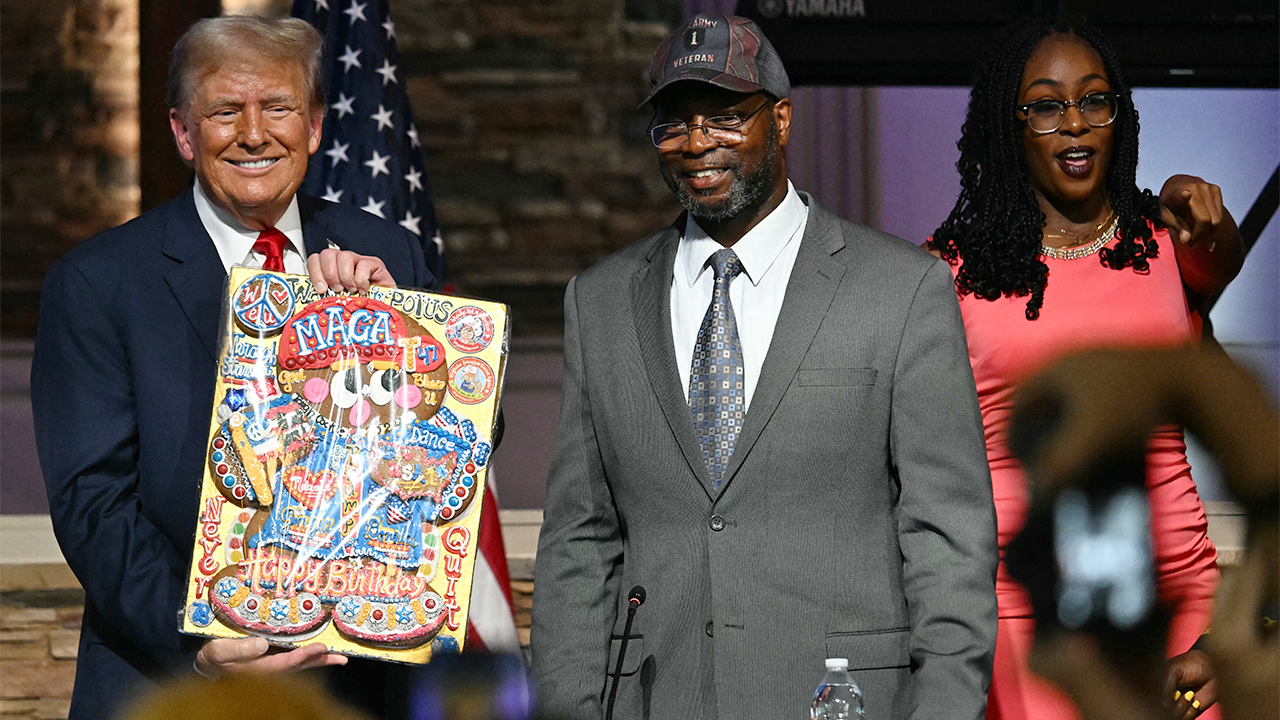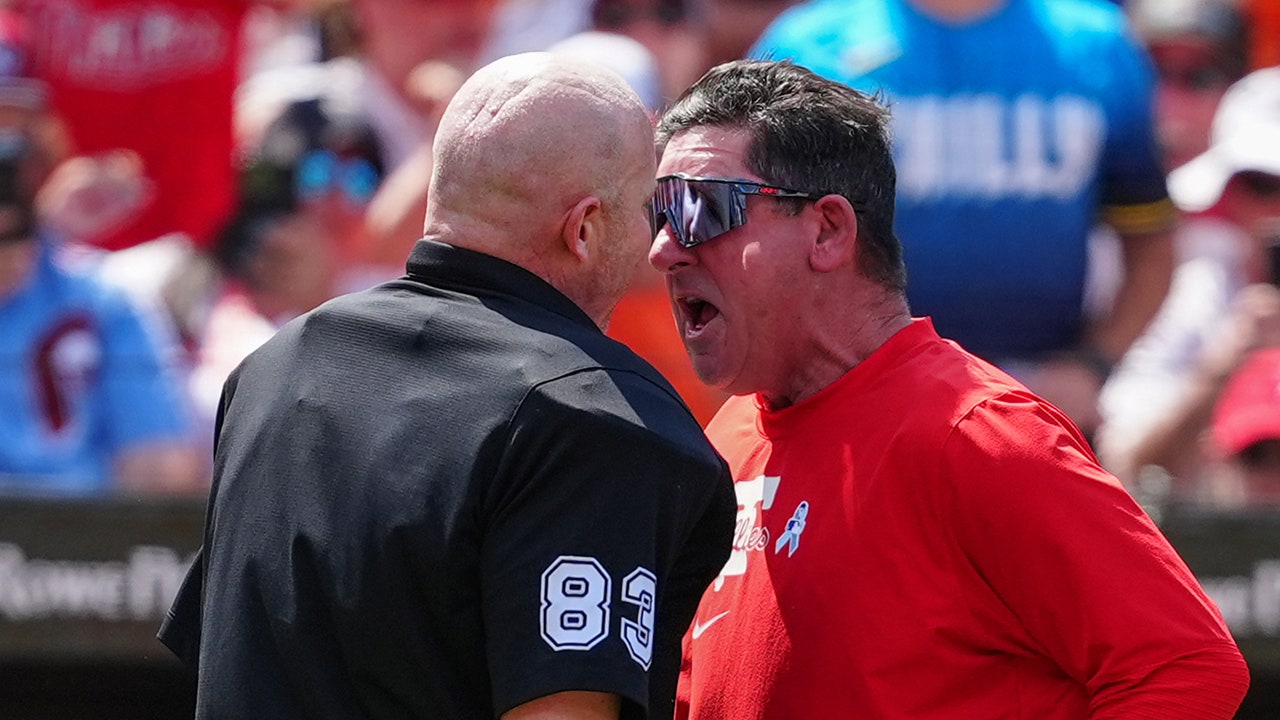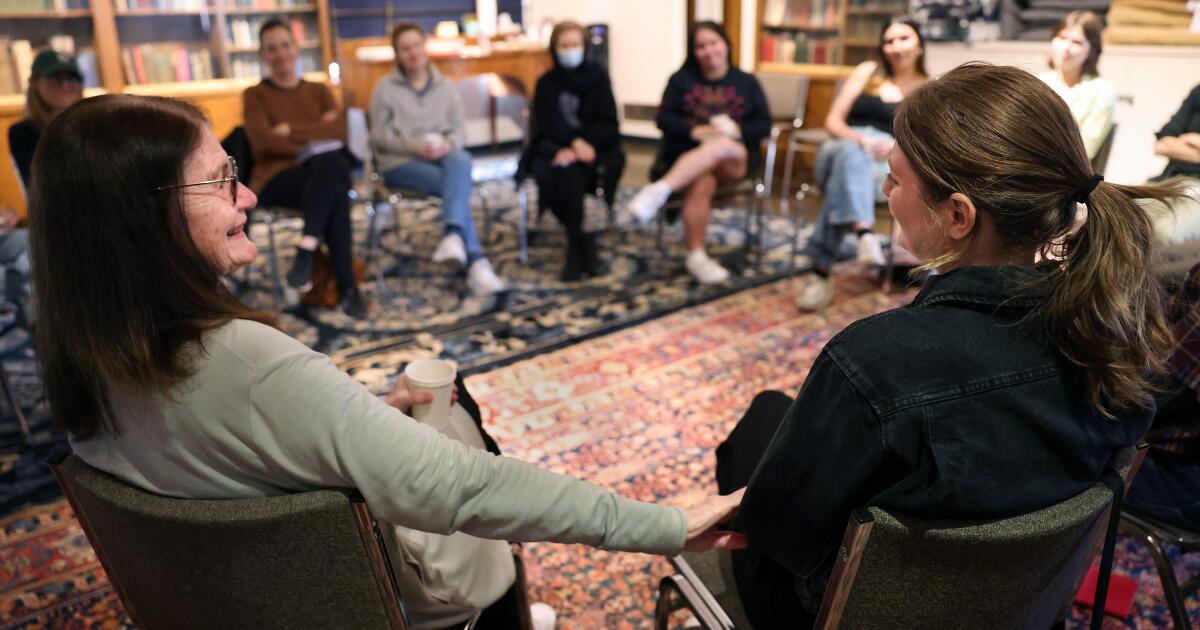Utah
Utah appeals court upholds public records release on wolves

SALT LAKE CITY — The Utah Court of Appeals has sided with a journalist pursuing records about state contracts with an organization lobbying to remove the Gray Wolf from federal endangered species protections.
In a ruling made public late Friday, the Court sided with Eric Peterson and the Utah Investigative Journalism Project over expense reports from Big Game Forever related to its contract work with Utah’s Department of Natural Resources. The agency granted Peterson’s request for those reports, but redacted some portions of the records. Peterson challenged the redactions and the Utah State Records Committee reversed DNR’s decision.
That prompted Big Game Forever to go to court to challenge the records committee’s decision. A lower court ruled in Peterson and the Utah Investigative Journalism Project’s favor. Big Game Forever appealed.
The Utah Court of Appeals unanimously sided with Peterson and the Utah Investigative Journalism Project again.
Big Game Forever has received millions of dollars from the state of Utah over the years in efforts to lobby for wolf delisting.
“Big Game has subcontracted with numerous vendors, and it claims to have dealt with two consistent problems: (1) ‘frequent death threats and harassment regarding the work it (and its vendors) performs’ and (2) competitors’ efforts to poach its subcontractors in an attempt to compete for future contracts. Thus, Big Game has taken, in its judgment, ‘all reasonable measures’ to maintain and protect the confidentiality of its subcontractors’ identities,” Judge Gregory Orme wrote in the ruling, adding that an audit of the group’s first contract suggested there was a lack of sufficient safeguards around the money.
While a subsequent contract had expenditure disclosures, there was a provision that any information contained in them “would be protected,” Judge Orme wrote. That was the rationale for denying Peterson’s records request. When the case ultimately made it to court, a judge rejected the idea that the names of vendors was a “trade secret” and that releasing names or other information would be harmful.
The Utah Court of Appeals agreed and ruled the information could be released under Utah’s Government Records Access Management Act (GRAMA), the law that governs public records.
“In applying this balancing test, the court weighed Big Game’s interest in protecting against unfair competition and its interest in protecting the subcontractors’ safety against the public’s interest in knowing how public funds are spent. The court stated that Big Game made only conclusory statements that its subcontractors had ‘historically been targeted by extremist animal rights groups’ without providing ‘any specifics as to the conduct by animal rights groups,’” Judge Orme wrote.
“Conversely, the court determined that ‘the public’s interest in obtaining access to the information regarding who is receiving public funds, and what they are doing to perform the public contract, is high’ and that ‘[t]he public has a great interest in the accountability and transparency of the expenditure of millions of dollars under the public contracts with Big Game.’ After balancing these considerations, the court concluded that ‘even if the subcontractor list is properly classified as protected, the interest favoring access is greater than or equal to the interest favoring restriction of access.’”
The judges ruled that Big Game Forever did not raise a sufficient enough challenge to the lower court’s decision to balance interests.
“Big Game’s argument on balancing in the commercial-information context is limited to the assertions that it ‘derives economic value from keeping the names of its subcontractors confidential’ and that ‘[c]onsidering the consequences to Big Game if these names were disclosed, Big Game’s interest in preventing disclosure outweighs the public’s interest in learning them,’” Judge Orme wrote. “In the context of challenging the district court’s … balancing of interests, these conclusory statements do not meaningfully engage with the district court’s reasoning and are thus insufficient to carry Big Game’s burden of persuasion on appeal.”
Emails to the Utah Investigative Journalism Project and an attorney representing Big Game Forever requesting comment on the Court’s ruling were not immediately returned on Saturday.
Read the Utah Court of Appeals ruling here:
While Big Game Forever was advocating for wolf delisting, there are signs that lawmakers on Utah’s Capitol Hill have questions about what they are ultimately getting for it. During a budget hearing in February before the Utah State Legislature’s Natural Resources, Agriculture and Environmental Quality Appropriations Subcommittee, Assistant House Majority Whip Casey Snider, R-Paradise, said the state has contributed a lot of money to the effort.
“I actually am very supportive of delisting wolves and having wolves under state management. But I’m not necessarily, and haven’t been, supportive of this blank check that’s contributed itself through time with not much accountability,” he said, adding he had concerns about “just continuing to throw money down this hole.”
Don Peay, representing an organization called Hunter Nation, pushed back in the hearing and insisted that Big Game Forever’s efforts were successful in getting a wolf delisting in parts of Utah.
“We got the little teeny sliver that goes from I-15 Idaho border down to Ogden, up to Evanston,” Peay replied. “So that little portion of Utah is now, wolves on that side of the boundary are not endangered species.”
Hunter Nation sought $500,000 for its wolf delisting efforts this year. The legislature approved $250,000.
Utah’s Department of Agriculture & Food has been bracing for the possibility of wolves entering Utah after Colorado voters approved their reintroduction. Under current federal laws, they must be trapped and relocated.

Utah
Dayglow announces Utah stop on fall 2024 tour

SALT LAKE CITY (ABC4) — Singer-songwriter Dayglow has recently announced his debut album — and with that album announcement came a tour announcement.
Dayglow’s upcoming album is titled “DAYGLOW,” and the accompanying tour is called “Dayglow: The Tour.” The singer is set to perform at the Great Saltair on Wednesday, Nov. 6, 2024.
The tour will take him across North America starting in September. At the show in Salt Lake City, Dayglow will be joined by the band Teenage Dads.
Tickets will be available to the public starting on Friday, June 21 at 10 a.m. local time. Before then, fans can sign up for presale, which begins Tuesday, June 18 at 1 p.m. Eastern.
Fans can purchase tickets and sign up for presale through Dayglow’s website.
“The vibe during the shows is so inviting and fun. People are either smiling or dancing, but it’s also common to do both,” Dayglow said. “I think this tour is going to be the best yet by far. I feel healthy, happy, and ready to rock.”
The singer’s new album is expected to be released in the fall. Before dropping the album, Dayglow released the single “Every Little Thing I Say I Do” in May, and will be releasing another single later in June.
The album was written, performed, produced and mixed by the singer in his home studio.
“Dayglow is finally entering the world in its purest form with clarity and confidence,” the singer said of the new record. “I want this album to define exactly what Dayglow looks like, sounds like, and feels like.”
Dayglow has previously sold out headline tours and performed at several festivals — including Lollapalooza and Bonnaroo — in addition to performing on several late-night shows.
Utah
Man who murdered 14 women in LA in '80s and '90s charged with killing another woman in Utah

LOS ANGELES (CNS) — A man who murdered 14 women in Los Angeles from 1987-98 has been charged with killing another woman in Utah, authorities said this week.
Chester Turner, 57, is currently in state prison in California for killing 14 women in a several-mile area along Figueroa Street south of the 10 Freeway. The victims were mostly sex workers and/or homeless women, and one of them was pregnant.
Prosecutors once called him the city’s most prolific serial killer, and said most of his victims were also raped.
On Friday, the Salt Lake City District Attorney’s Office announced that Turner was charged with the murder of Itisha Camp, whose body was found at the back of a business on Sept. 24, 1998 by three juveniles. Prosecutors say she was killed by strangulation; most of Turner’s victims in Los Angeles were strangled.
Utah authorities say they linked Camp’s killing to Turner through DNA evidence. They said Turner fled to Utah in 1998 in violation of his parole in California for auto theft and drug sales.
“It must have been profoundly difficult for Ms. Camp’s family and loved ones over the last 25 years, not knowing if the suspect in her murder was still out in the public,” Salt Lake County District Attorney Sim Gill said. “We hope the filing of this charge brings some relief to Ms. Camp’s loved ones and our entire community, knowing that the defendant is already behind bars.”
Turner was convicted in April 2007 of 10 counts of first-degree murder, and was subsequently convicted and sentenced to death in 2014 for the four other killings. His appeal for those four murders is still pending.
Turner was initially convicted of murdering:
— Diane Johnson, 21, who was found dead in March 1987;
— Annette Ernest, 26, who was killed in October 1987;
— Anita Fishman, 31, who was murdered in January 1989;
— Washington, 27, who was visibly pregnant when she was slain in
September 1989;
— Desarae Jones, 29, who was killed in May 1993;
— Andrea Tripplett, 29, who was strangled April 2, 1993, in South Los
Angeles;
— Natalie Price, 31, whose body was found outside a home on Feb. 12, 1995;
— Mildred Beasley, 45, whose body was found in a field on Nov. 6, 1996;
— Paula Vance, 38, who was strangled on Feb. 3, 1998, during the
commission of a rape, which was caught on grainy black-and-white surveillance
videotape in which the assailant’s face cannot be seen; and
— Brenda Bries, 37, who was found dead in the Skid Row area on April 6, 1998.
Turner lived within 30 blocks of each of the killings — with Bries’ body discovered in downtown Los Angeles just 50 yards from where he was living at the time.
He was linked to the strangulations through DNA test results after being arrested and convicted of raping a woman on Skid Row in 2002.
He was subsequently convicted in 2014 for the killings of 33-year-old Elandra Bunn in June 1987; 28-year-old Deborah Williams in November 1992; 42-year-old Mary Edwards in December 1992; and the February 1997 killing of 30-year-old Cynthia Annette Johnson in Watts.
It was not immediately clear if or when he would be sent to Utah to face the latest murder charge.
Copyright 2024, City News Service, Inc.
Copyright © 2024 by City News Service, Inc. All Rights Reserved.
Utah
Utah's Cam Rising hosts 'Rising Stars' football camp for athletes of all ages, all abilities

HERRIMAN, Utah — University of Utah quarterback Cam Rising has been busy this off-season, hosting his first-ever “Rising Stars” football camp at Herriman High School.
“I’ve been in Utah for quite a while now; it really has become home to me,” said Rising. “Utes fans always come out and show so much support for us, so we’re giving to the community and doing anything we can.”
His football camp was for all athletes, grades K-12, and special needs athletes got to be a part of the fun with the “12th man” portion of the camp.
“I just wanted to make sure everybody has the opportunity,” Rising said. “Football is sometimes only for a select few, and when you can invite more people to be involved with football, it just expands the horizon.”
Supported by GATS Entertainment, this football camp was more than just sport. There was also a semi-truck that was being loaded up with food to contribute to the “For The Kids” Foundation, plus a portion of the camp’s money raised will be given to Herriman High School.
Joining Rising at the camp were also some of his Utah football teammates, who said it was important to them to be there.
“I saw Cam was having a camp and he was just talking to us in the locker room and he said, ‘Come have fun,’ so I came out here,” said Utah cornerback Tao Johnson. “It’s an amazing opportunity to give back to those same kids who are in the stands on Saturdays.”
Running back Jaylon Glover added: “Anything for Cam. This is what you live for, you know, coming to the next level you want to give back because I remember when I was in these kids’ shoes.”
One of the special needs campers, who got to hang with Rising, shared that the support was the best part.
“Oh, this was so fun,” he said. “To have all these people come and support you and help you be a part of what they do, it’s really the best feeling in the world.”
Utah opens its 2024 football season with Rising leading the way on Thursday, August 29, at home against Southern Utah.
-

 Politics1 week ago
Politics1 week agoNewson, Dem leaders try to negotiate Prop 47 reform off California ballots, as GOP wants to let voters decide
-

 World1 week ago
World1 week agoDozens killed near Sudan’s capital as UN warns of soaring displacement
-

 World1 week ago
World1 week ago‘Bloody policies’: Bodies of 11 refugees and migrants recovered off Libya
-

 Politics1 week ago
Politics1 week agoEmbattled Biden border order loaded with loopholes 'to drive a truck through': critics
-

 Politics1 week ago
Politics1 week agoGun group vows to 'defend' Trump's concealed carry license after conviction
-

 Politics7 days ago
Politics7 days agoShould Trump have confidence in his lawyers? Legal experts weigh in
-

 News1 week ago
News1 week agoWould President Biden’s asylum restrictions work? It’s a short-term fix, analysts say
-

 News1 week ago
News1 week agoRead Justice Clarence Thomas’s Financial Disclosures for 2023














